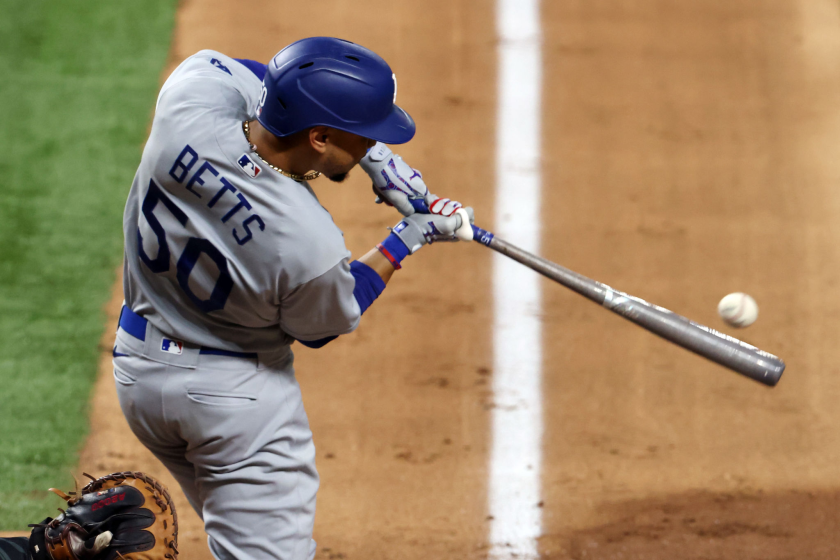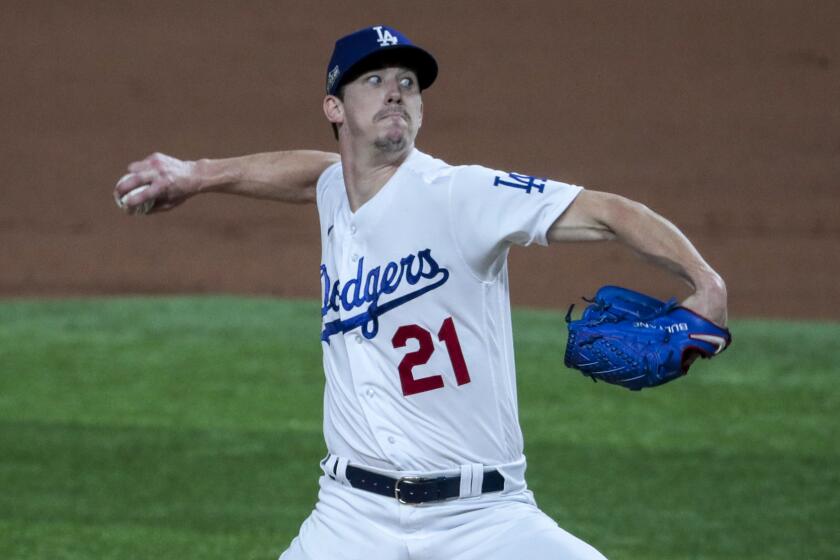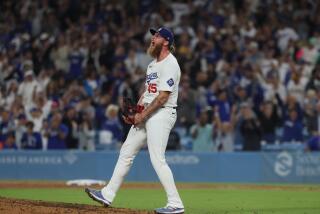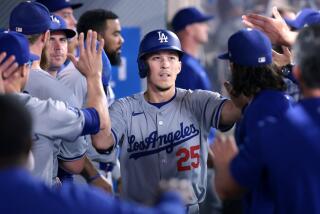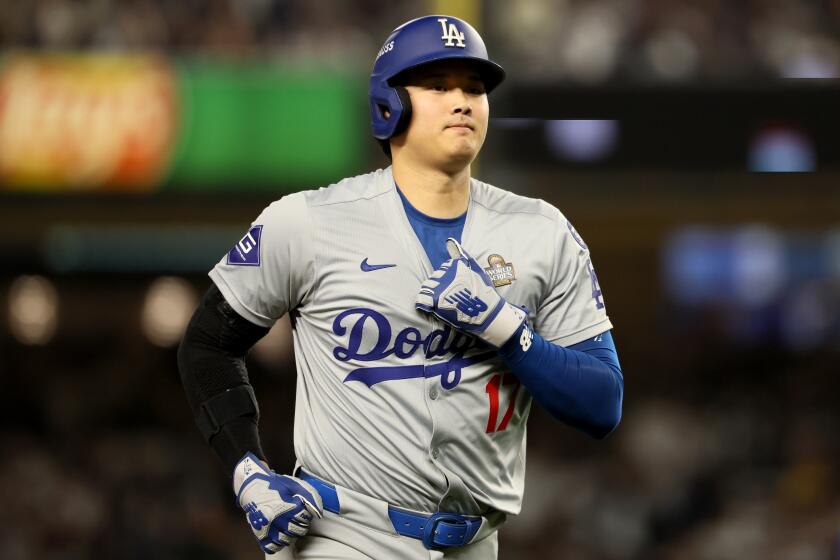Braves’ Game 1 starter Max Fried started career in SoCal with Encino Little League
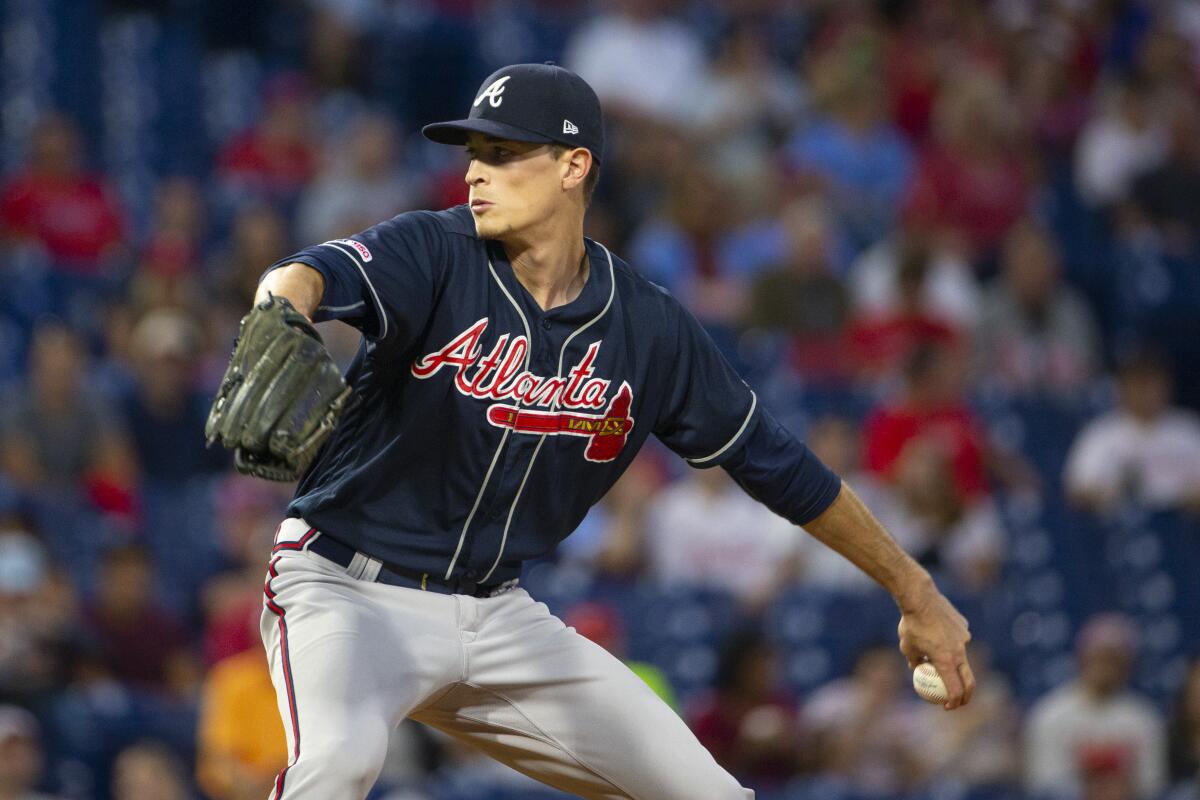
The Encino Little League sits in the shadow of the Ventura Freeway, a second home for generations of kids raised in the San Fernando Valley.
The mayor of Los Angeles, Eric Garcetti, played in the Encino Little League.
So did David Forst, general manager of the Oakland Athletics. So did Torey Lovullo, manager of the Arizona Diamondbacks, and Gabe Kapler, the manager of the San Francisco Giants.
That local knowledge might win you a beer or two in some trivia night along Ventura Boulevard, but bragging rights belong to the players, and the best player produced by the Encino Little League in this generation will be staring down his hometown team Monday.
He is Max Fried, the Atlanta Braves’ starting pitcher for Game 1 of the National League Championship Series against the Dodgers.
He was not a natural, at least not as soon as he showed up for T-ball. They gave Fried a bat, and he hit the ball and ran the wrong way.
Learning from past playoff failures, the Dodgers strike out less and do more with the bat than hit homers. Star addition Mookie Betts is a catalyst.
“He didn’t have a clue,” said Jeff Cohen, who succeeded Fried’s father as president of the league. “He hit left-handed and ran to third base.”
Fried soon dominated, leading an Encino team to a district championship for the first time. When the coach asked Fried whether he wanted to get the last out of the district final, to cap his star turn, he said no.
“It was his world,” Cohen said. “He said to the other pitcher, ‘This is your game.’ ”
Fried had plenty of games of his own. He starred at Montclair Prep and then at Harvard-Westlake High, and he was selected with the seventh pick of the 2012 draft. No high school left-hander had been taken that high since Clayton Kershaw, in 2006.
Five days after he was drafted, and on the day after his high school graduation was followed by the traditional all-night party at Disneyland, Fried honored his promise to come back to Encino Little League and throw out the first pitch for the league’s championship game.
He modeled his pitching after Kershaw and Cole Hamels, two sturdy left-handers. His family is Jewish, and his father taught him about the greatest Jewish left-hander of them all, Sandy Koufax. In high school and in the minor leagues, he wore Koufax’s No. 32. Today, Fried wears No. 54.
“When I got to the big leagues, I just got handed a number,” Fried said.
Dodgers manager Dave Roberts is undecided about who will start Games 3, 4 and 5, but it will be some combination of Dustin May, Tony Gonsolin and Julio Urías.
His ascent was less like Kershaw, more like Koufax. Kershaw was drafted at age 18 and called up to the major leagues at 20, and he stayed for good. Koufax signed at 18 but, with the Dodgers restricted from sending him to the minors because of his high signing bonus, he needed six years to anchor himself in the starting rotation.
Fried signed at 18, underwent Tommy John surgery and was traded at 20, returned to the minors at 22, made his major league debut at 23, and finally made the majors to stay last year, at 25.
He went 17-6 with a 4.02 earned-run average last year, 7-0 with a 2.25 ERA this year.
“He’s a great guy, hard worker, diligent, responsible, accountable,” Braves general manager Alex Anthopoulos said. “He’s everything you want. He deserves all the credit. He wants to be great.”
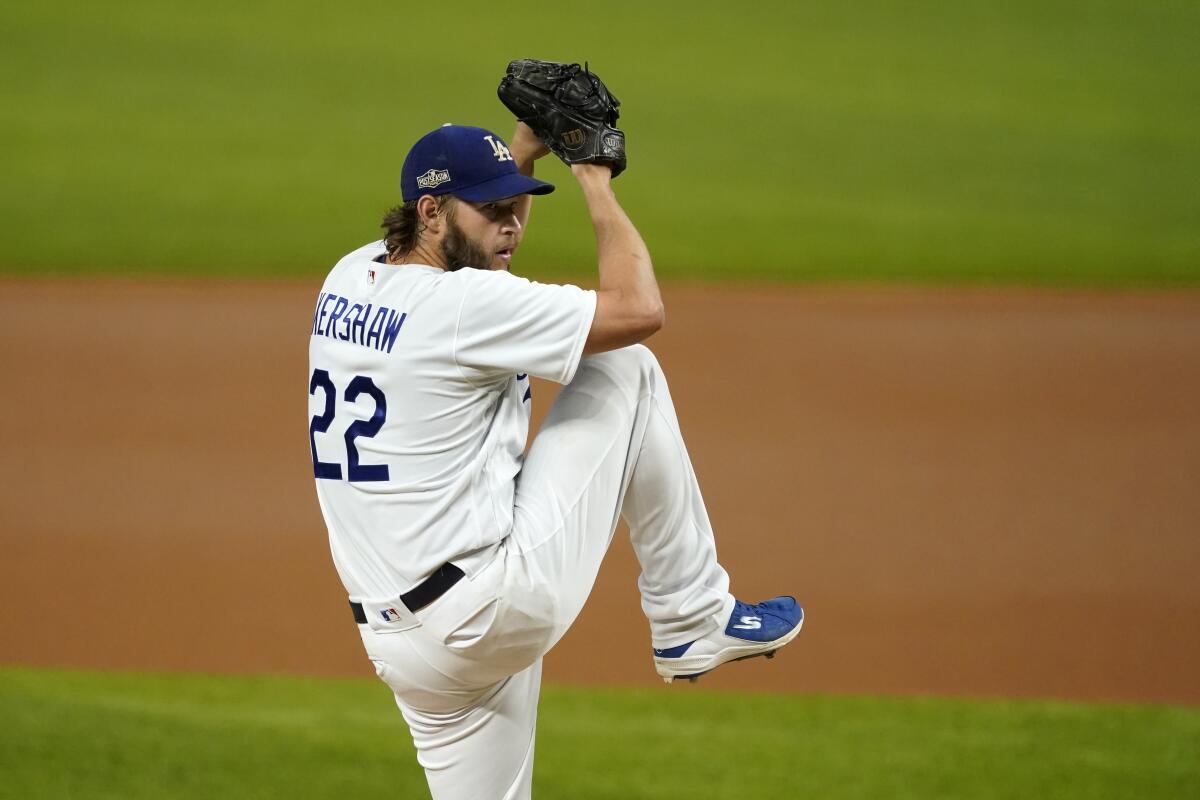
Fried allots a hearty share of the credit to someone he met at Encino Little League, when he was 4. Reggie Smith, the former Dodgers outfielder who played for the 1981 World Series champions, runs an academy on the league’s grounds.
The two still talk regularly, and Fried visits Smith in the offseason. Smith is 75, Fried 26, a generation gap bridged by mutual respect.
“Reggie’s been one of my mentors since I first met him,” Fried said. “From a young age, I was able to learn and have my baseball knowledge from Reggie. Growing up, I was always playing outfield and first base, so I was definitely a position player. I pitched too.
“I started having more deep conversations about pitching, and setting hitters up. He helped me get into the mind of a hitter — what they look for, what they don’t. He’s just a really good and smart baseball mind. Any and every question I have, I can always reach out to him, and I know that he’s there for me.”
On the grounds of his academy, Smith hangs a sign for all the pitchers to see. The words on the sign reflect a lesson from Koufax, about how he became a great pitcher when he started trying to make hitters hit the ball instead of miss it.
Of the 39 NL pitchers to throw at least 50 innings, Fried ranked 26th in strikeouts. He led the league in lowest exit velocity of batted balls, highest percentage of softly hit balls, and lowest percentage of hard-hit balls.
Atlanta Braves GM Alex Anthopoulos is one of several executives with ties to the Dodgers’ Andrew Friedman, and both feel the scars of Houston’s cheating in 2017.
“It still comes down to, you still have to locate the pitches where you want them to go,” Smith said. “All the bells and whistles they can use — the Rapsodo, the spin rate, the analytics, the hot zone — the hitters are doing the same thing. They have the same information on pitchers.
“Instead of trying to strike hitters out, throw to the good spots. You pitch to contact, but you throw those pitches into those areas that are tough. Make them hit not only what you want them to hit, but where you want them to hit it. It’s a little bit more difficult now, because they put shifts on.
“That’s something Max and I talk about. You control the game. You control the ball. It’s the only sport, for the most part, where the defense controls the ball.”
Smith gushed about Fried’s confidence, intelligence and genuine nature. He found a way to sum up all those positive qualities.
“It’s like my mom and dad used to say,” Smith said. “He’s a kid you’d want your daughter to marry.”
More to Read
Go beyond the scoreboard
Get the latest on L.A.'s teams in the daily Sports Report newsletter.
You may occasionally receive promotional content from the Los Angeles Times.

